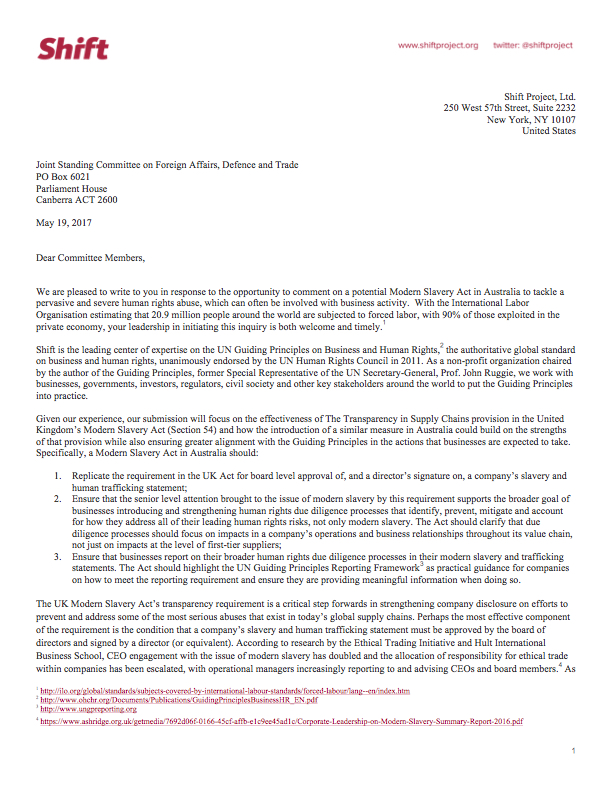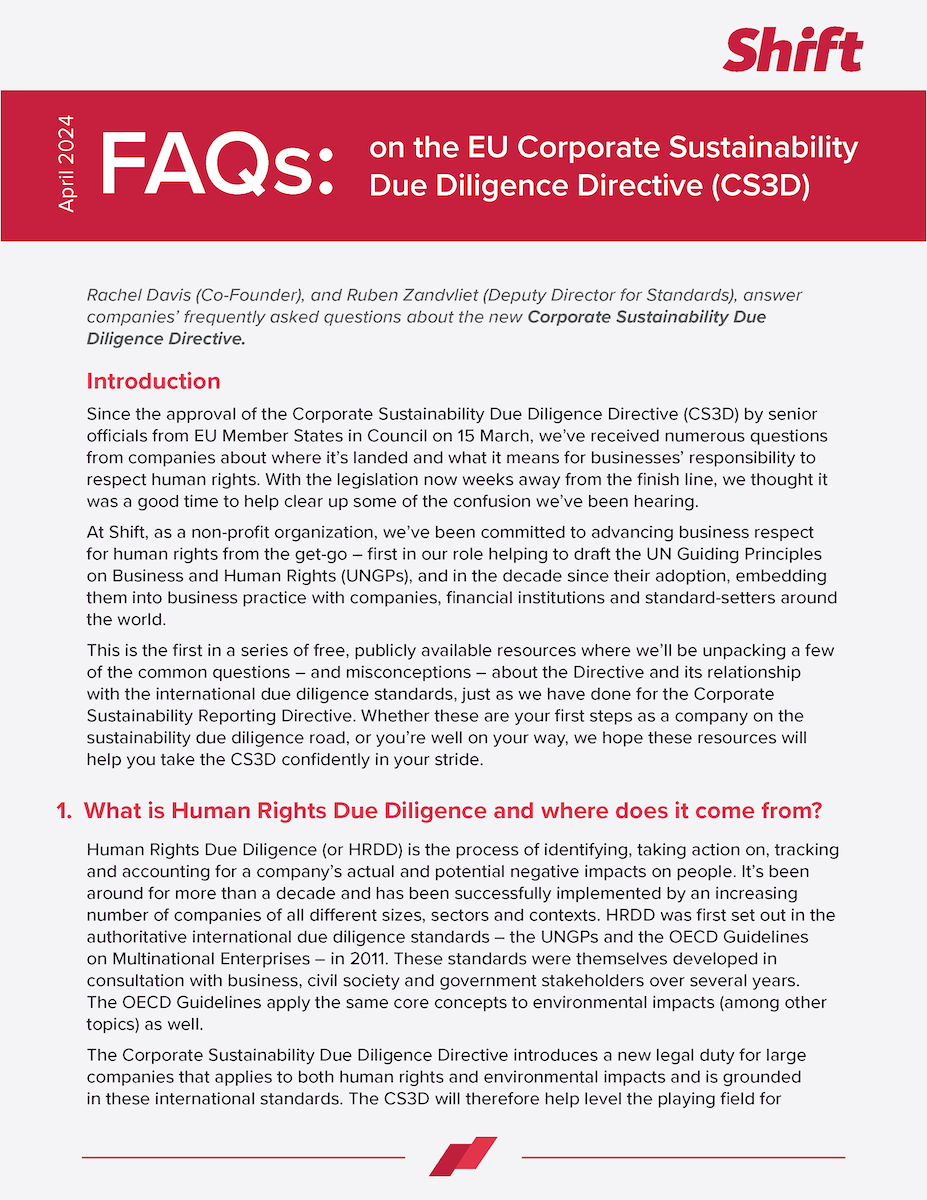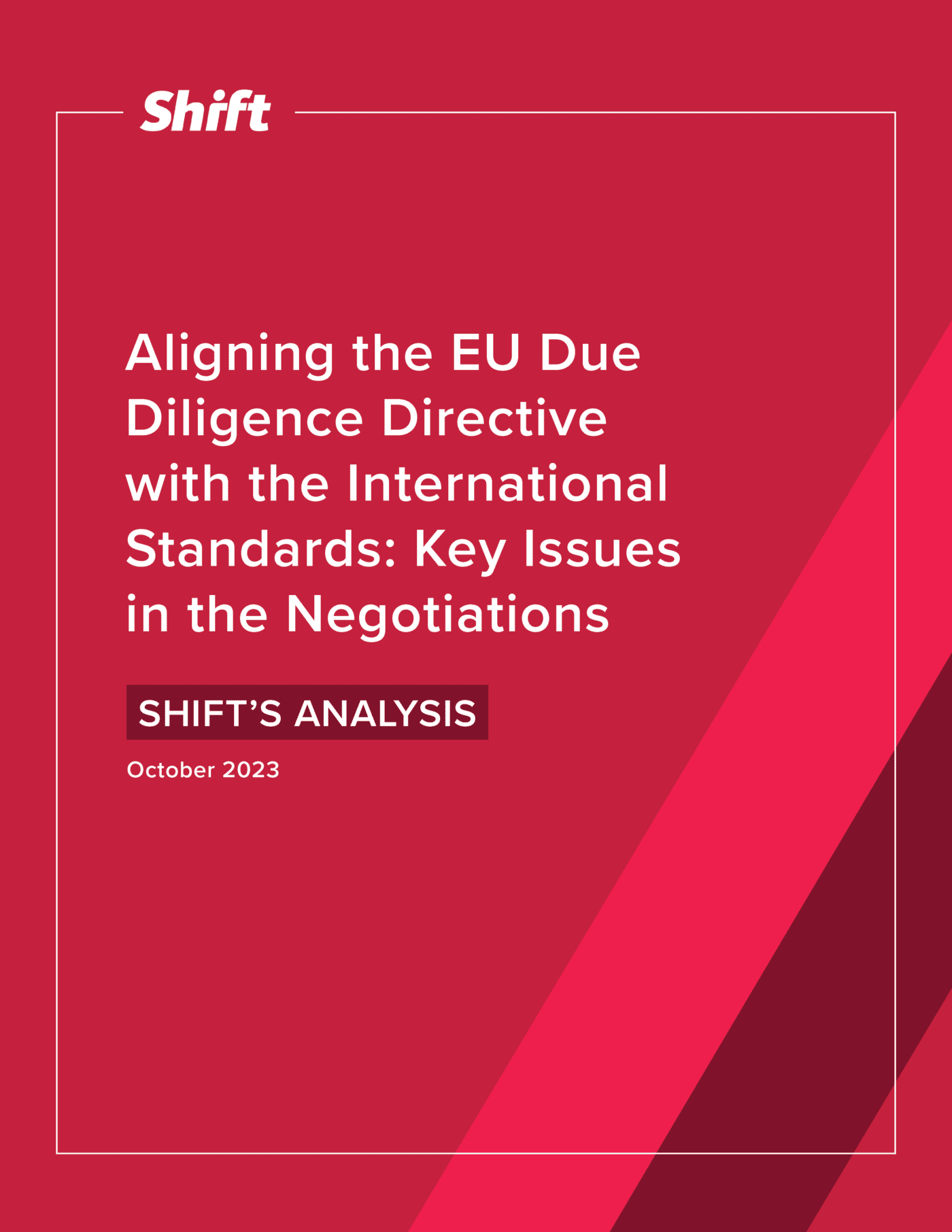Below is an excerpt from our submission to the Australian Joint Standing Committee on Foreign Affairs, Defence and Trade. Download the PDF to view the entire submission.
Joint Standing Committee on Foreign Affairs, Defence and Trade
PO Box 6021
Parliament House
Canberra ACT 2600
May 19, 2017
Dear Committee Members,
We are pleased to write to you in response to the opportunity to comment on a potential Modern Slavery Act in Australia to tackle a pervasive and severe human rights abuse, which can often be involved with business activity. With the International Labour Organization estimating that 20.9 million people around the world are subjected to forced labor, with 90% of those exploited in the private economy, your leadership in initiating this inquiry is both welcome and timely.
Shift is the leading center of expertise on the UN Guiding Principles on Business and Human Rights, the authoritative global standard on business and human rights, unanimously endorsed by the UN Human Rights Council in 2011. As a non-profit organization chaired by the author of the Guiding Principles, former Special Representative of the UN Secretary-General, Prof. John Ruggie, we work with businesses, governments, investors, regulators, civil society and other key stakeholders around the world to put the Guiding Principles into practice.
Given our experience, our submission will focus on the effectiveness of The Transparency in Supply Chains provision in the United Kingdom’s Modern Slavery Act (Section 54) and how the introduction of a similar measure in Australia could build on the strengths of that provision while also ensuring greater alignment with the Guiding Principles in the actions that businesses are expected to take. Specifically, a Modern Slavery Act in Australia should:
- Replicate the requirement in the UK Act for board level approval of, and a director’s signature on, a company’s slavery and human trafficking statement;
- Ensure that the senior level attention brought to the issue of modern slavery by this requirement supports the broader goal of businesses introducing and strengthening human rights due diligence processes that identify, prevent, mitigate and account for how they address all of their leading human rights risks, not only modern slavery. The Act should clarify that due diligence processes should focus on impacts in a company’s operations and business relationships throughout its value chain, not just on impacts at the level of first-tier suppliers;
- Ensure that businesses report on their broader human rights due diligence processes in their modern slavery and trafficking statements. The Act should highlight the UN Guiding Principles Reporting Framework as practical guidance for companies on how to meet the reporting requirement and ensure they are providing meaningful information when doing so…




